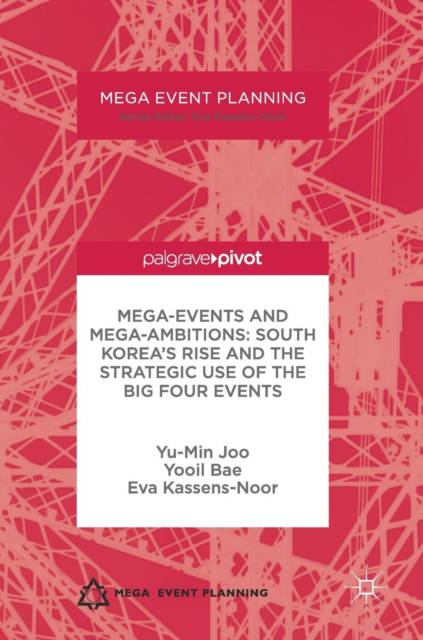
- Afhalen na 1 uur in een winkel met voorraad
- Gratis thuislevering in België vanaf € 30
- Ruim aanbod met 7 miljoen producten
- Afhalen na 1 uur in een winkel met voorraad
- Gratis thuislevering in België vanaf € 30
- Ruim aanbod met 7 miljoen producten
Zoeken
Mega-Events and Mega-Ambitions: South Korea's Rise and the Strategic Use of the Big Four Events
Yu-Min Joo, Yooil Bae, Eva Kassens-Noor
€ 83,95
+ 167 punten
Omschrijving
This book provides a holistic analysis of South Korea's strategic use of mega-events in its modern development. It examines the Summer Olympics (1988), the World Expo (1993), the FIFA World Cup (2002), and the Winter Olympics (2018) over the past 30 years of the country's rapid growth, and across varying stages of economic and political development. It explains how mega-events helped to secure South Korea's position on the international stage, boost nationalism, propel economic growth in export-oriented national companies, and build cities that accommodate - as well as represent - South Korea's progress. It thereby highlights the broader implications for today's global phenomenon of increasing reliance on mega-events as a catalyst for development, while the criticism that mega-events do more harm than good proliferates. The book is ideal for academics, policymakers, and those with an interest in mega-events and their role in the development of non-western countries.
Specificaties
Betrokkenen
- Auteur(s):
- Uitgeverij:
Inhoud
- Aantal bladzijden:
- 132
- Taal:
- Engels
- Reeks:
Eigenschappen
- Productcode (EAN):
- 9781137531124
- Verschijningsdatum:
- 18/07/2017
- Uitvoering:
- Hardcover
- Formaat:
- Genaaid
- Afmetingen:
- 148 mm x 210 mm
- Gewicht:
- 331 g

Alleen bij Standaard Boekhandel
+ 167 punten op je klantenkaart van Standaard Boekhandel
Beoordelingen
We publiceren alleen reviews die voldoen aan de voorwaarden voor reviews. Bekijk onze voorwaarden voor reviews.











